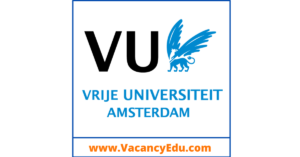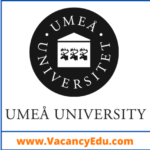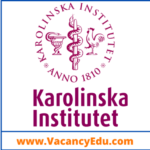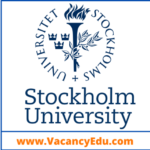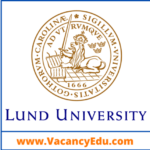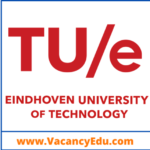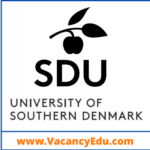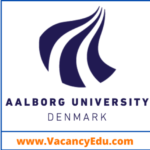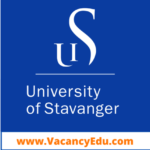Vrije University Amsterdam, Netherlands invites online Application for number of Fully Funded PhD Degree at various Departments. We are providing a list of Fully Funded PhD Programs available at Vrije University Amsterdam, Netherlands.
Eligible candidate may Apply as soon as possible.
(01) PhD Degree – Fully Funded
PhD position summary/title: Phd: Sex and gender differences in the working mechanisms of addiction
Alcohol use disorder (AUD) is one of the most prevalent psychiatric disorders in the Netherlands. While the prevalence of AUD is 2-3 times higher in men than in women, this gap is quickly closing. Moreover, the prevalence of AUD is suggested to be 3 times higher among gender minorities compared to cisgender individuals. Unfortunately, sex and gender differences in the development and treatment of AUD have been scarcely investigated. Therefore, the main aim of the current PhD project will be to investigate sex and gender differences in stress-related alcohol use in both clinical and non-clinical populations based on different datasets. In these datasets, we have data on subjective (craving) and physiological (heart rate variability, cortisol) alcohol cue and stress reactivity, sex hormone levels and as well as daily variations in stress, craving and alcohol use as measured over 28 days (SEGA 2.0 study) or 4 months (SEGA study).
The PhD on this project will focus primarily on setting up and performing statistical analyses of these complex longitudinal and physiological data, including dynamic structural equation modelling. In these analyses, you will not only focus on sex-based biological differences (including variations in sex hormone levels) but also sociocultural gender-related differences (including variations in gender expression). Results will be published in scientific articles, with the overall aim to gain insight into the sex- and gender differences in the working mechanisms underlying alcohol use disorder.
Deadline : 26-8-2024
(02) PhD Degree – Fully Funded
PhD position summary/title: PhD: Economic value of sand nourishment strategies
We offer an exciting PhD position in a transdisciplinary research project on coastal sand nourishment strategies. As a PhD candidate, you will assess preferences of the general public for several non-market social and environmental benefits resulting from large-scale sand nourishment, and how these benefits are distributed across stakeholders. The economic viability of sand nourishment strategies in the Netherlands will be evaluated based on temporally and spatially explicit extended cost-benefit analyses (CBA) that include the elicited non-market, monetized benefits.
As a PhD, you will be involved in a new Dutch Research Council (NWO) funded project called SOURCE (Sand nOURishment strategies for sustainable Coastal Ecosystems). Coastal sand nourishments – the addition of sand to increase beach volume – are potentially a key method to sustainably adapt to accelerated sea-level rise and keep the low-lying hinterland protected. SOURCE will develop critically-needed coastal ecosystem knowledge and improve the prediction of nourishment impacts on key coastal state indicators. The project will assess the ecological impacts, and explore the potential of using nourished sand for new habitat creation. The integrated design process will develop innovative nourishment strategies, co-created with stakeholders. The project’s Living Lab is a sand nourishment along the Dutch coast, which will be designed, constructed and evaluated.
Deadline : 6-9-2024
View All Fully Funded PhD Positions Click Here
(03) PhD Degree – Fully Funded
PhD position summary/title: PhD-position: Graphic Medicine Online
This ERC project will critically elaborate the benefits of further integrating insights from the Humanities in the Critical Medical and Health Humanities by examining and expanding discourse on Graphic Medicine. A flourishing field that utilizes theoretical and artistic research practices in productive reciprocal exchange, Graphic Medicine is attentive to how the study and production of comics about health and healthcare echo calls within the Critical Medical and Health Humanities for the urgent need for different understandings and expressions of illness and disability than those found in conventional medical discourse. Focused on bottom-up, experiential knowledge, Graphic Medicine promotes comics as an important medium to depict interactions between individuals, their families and carers, a wide array of healthcare workers, and healthcare systems as scenes of intercultural, interdiscursive, and intergenerational encounter.
Through cross-national, cross-cultural, and cross-linguistic analyses of Graphic Medicine, from healthcare education to online information, and from individual artistic practices to collaborations between comics artists and healthcare institutions, this project will critically and comprehensively evaluate and develop the aims, current applications, and potential of Graphic Medicine across five individual subprojects. In so doing, it will also advance an understanding of creative practices as capable of critiquing and producing theory, will develop the discourse of what counts as healthcare knowledge, and will contribute to the aims of the Critical Medical and Health Humanities to offer new insights for healthcare training, practice, and dissemination.
Deadline : 30-9-2024
(04) PhD Degree – Fully Funded
PhD position summary/title: Two PhD-positions for project “Managing Generative AI in the workplace”
The PhD student will conduct theoretical and empirical research on the (un)intended consequences of GenAI on group and organizational level, including studying themes such as GenAI’s impact on work practices, professionals’ interactions and relationships within the organization, management and organizational responsibilities and organizational structures.
The PhD student will give a modest contribution to the Department’s teaching programme, with the opportunity to obtain a basic qualification teaching certificate (shortened BKO).
Deadline :1-9-2024
(05) PhD Degree – Fully Funded
PhD position summary/title: PhD position in gravitational waves on cryogenic sensing and vibration isolation
The gravitational-wave research group at VU Amsterdam, hosted at Nikhef (www.nikhef.nl), welcomes applications for a four-year PhD student position on cryogenic sensing and (cryogenic) seismic attenuation.
Nikhef is a member of the European Gravitational-wave Observatory (EGO) hosting the Virgo detector and is a leading research group within the Einstein Telescope (ET, https://www.einsteintelescope-emr.eu/) collaboration. ET aims to employ cryogenic cooling of its test masses to lower coating and suspension thermals noise such that the detection band lower limit can be stretched to about 3 Hz. This will require several physical (heat) links at the bottom of the test mass suspensions, possibly injecting cryocooler and/or ground noise from the much less isolated cold finger (the cooled part from which heat links are drawn towards the suspension).
You will investigate sensing, actuation and seismic isolation solutions including superconducting (inertial) sensing and actuation and active isolation of the cold finger. The cryogenic inertial sensing solutions will also find application in the Lunar Gravitational-wave Antenna (LGWA, http://lgwa.unicam.it/). At Nikhef, a cryogenic and vibrationally quiet sensor test bed is under development and in Maastricht, the ETpathfinder research facilities allow for testing your solutions in a cryogenic detector environment. Your research will entail (finite element) modeling and subsequent instrumentation work in the context of ET. In addition, you will also gain real detector experience by contributing to Virgo, possibly by helping design, prototype and install suspensions for new optics part of a detector upgrade.
Deadline : 7-10-2024
Polite Follow-Up Email to Professor : When and How You should Write
Click here to know “How to write a Postdoc Job Application or Email”
(06) PhD Degree – Fully Funded
PhD position summary/title: PhD 50% / Lecturer 50% (Creating New International Courts)
The position includes PhD research (50%) and teaching (50%) for a period of maximum 8 years. The PhD project will study the creation of new international courts, focusing on the proposed International Anti-Corruption Court (IACC) as a case study
The creation of new international courts has been described as “nothing short of a miracle”. International courts provide checks and balances on state sovereignty, and modern international courts are distinguished by their compulsory jurisdiction and the provision of direct access for non-state actors. Once states have delegated authority to such international judicial institutions, these bodies begin to develop and influence global and domestic politics. Importantly, the creation of new courts is not solely a state-driven process; national and transnational networks, as well as individuals also play a significant role. Therefore, it is crucial to study the conditions under which new international courts are created. Additionally, the factors that influence the creation of new international courts also shape the authority of these institutions in the future.
The IACC has been first proposed in 2012 and negotiations regarding its statute and creation are still ongoing. The developments during this process raise several issues that could be uncovered and theorized in a sociolegal doctoral research project. This new international court is expected to focus on “grand corruption” – the abuse of public power for private gain by a nation’s leaders. It builds upon existing national and international legal frameworks against corruption, including criminal laws, regional and international treaties, which have already been interpretated by national, regional and international courts. Moreover, the responsibility of heads of state as well as the subsidiarity principle have been a contentious issues in international criminal justice, triggering backlash. A multitude of actors, including national and international officials as well international lawyers, to non-governmental organizations, think tanks and academics, have been attempting to influence the process of establishing this new jurisdiction.
We invite candidates to submit their proposals for a doctoral research project, articulating a particular approach to the creation of new international courts, with a specific focus on the IACC. We welcome diverse approaches, which could focus on angles such as the development of a professional field around a new institution, the role of non-state actors, the role legal neo-colonialism and decolonial perspectives, the politicization of international criminal justice, backlash against international courts or comparative approaches.
In this PhD project the student will be working under the supervision of dr. Pola Cebulak, dr. Prosper Simbarashe Maguchu, and prof Galina Cornelisse. The candidate will have the opportunity to contribute to the foundational literature on the International Anti-Corruption Court (IACC), addressing both its promises and perils. Additionally, the candidate will gain direct access to the Working Group responsible for the IACC treaty, allowing for a critical examination of the treaty. The analysis could be further enriched by comparative studies with other international courts, such as the International Criminal Court or the African Court of Human and Peoples’ Rights, whose jurisdiction has been amended by the Malabo Protocol to include criminal jurisdiction over transnational crimes, such as corruption.
Deadline :10-9-2024
(07) PhD Degree – Fully Funded
PhD position summary/title: PhD position in Biomedical Optics
For this project, we are looking for three PhD students who will work on optical system development, novel catheter designs, data processing algorithms, and modeling of scattering and polarization properties of tissue, with the goal of bringing these technologies to patient care. The research will be conducted at the VU University in Amsterdam. The candidate will be part of the PhD program of the Biophotonics & Medical Imaging section under the Physics and Astronomy Department at the Vrije Universiteit Amsterdam, under the supervision of Prof. Dr. J.F. de Boer, an internationally recognised leader in the field of Biophotonics (www.deboer.one).
Deadline : 30-11-2024
(08) PhD Degree – Fully Funded
PhD position summary/title: PhD in soil fauna supporting multifunctionality in regenerative agriculture
There is steadily growing pressure on agriculture and the entire food system to increase global production while promoting sustainability in terms of farmers’ incomes, soil health, input use, and environmental and climate impact. Regenerative agriculture is a promising avenue to support a healthy, multi-functional and future-proof soil and farming system. Together with regenerative Dutch farmers, ReGeNL is developing a future-proof agricultural sector in which agriculture goes hand in hand with soil health and nature restoration, and a good revenue model for farmers. Between now and 2030, ReGeNL will start the transition to regenerative agriculture with 1000 farmers. The aim is to make regenerative agriculture the new normal by 2040.
This PhD will be one of 19 PhDs being recruited to support the monitoring, modelling and valuing of regenerative farms in the Netherlands. This large-scale transdisciplinary project (ReGeNL) will assess which combinations of practices are adopted/recommended for 8 different types of regenerative agriculture systems. The project aims to be an accelerator for the transition to a regenerative, profitable and socially supported agricultural sector. As part of this project, we will monitor and model a range of different regenerative agricultural systems to understand which combinations of practices work for a range of agricultural, socio-economic and environmental outcomes. The outcomes assessed include; soil health, water and air quality, biodiversity and socio-economic goals such as farm income, citizen involvement, animal welfare and much more. Moreover, we will study how performance on these outcomes can be valued in food system governance.
As PhD you will work to support research and teaching activities within the A-LIFE section Ecology and Evolution. The role will encompass a variety of tasks.
Deadline : 1-9-2024
Click here to know “How to Write an Effective Cover Letter”
(09) PhD Degree – Fully Funded
PhD position summary/title: 2 PhD’s Patient centeredness and involvement in clinical studies in Europe
Health systems face a time of unprecedented change, with spiralling costs, increasing cultural disparity in access to healthcare, research, and an infrastructure that is decades old, resulting in increasing health inequities between social groups. Furthermore, research to address the health challenges often fail to engage diverse participants that accurately represent the general population. These so-called underserved (US) and underrepresented (UR) communities are often facing barriers like geographic limitations, mistrust, poor communication, and prejudice. This contributes to knowledge gaps in the research of many diseases and conditions, preventative care and effectiveness of treatments in different demographic groups, thereby widening and deepening existing healthcare disparities.
It is widely acknowledged that patient centeredness and patient involvement may contribute to public accountability of clinical research and the more effective translation of research outcomes into improvements in care practices. However, patient centeredness and involvement are often addressed superficially, focusing solely on patient choice and satisfaction and on easy-to-reach patient groups, rather than integrating a wide variety of patients and their input meaningfully into clinical study design and implementation. Achieving patient-centeredness necessitates a transition from predominantly disease-oriented, top-down approaches to more integral inclusive models and tools.
Within the framework of two large EU projects, two PhD positions are offered that focus on the broad research question: how to include a wide variety of groups, including currently US and UR communities, in clinical studies in order to enhance patient centredness in intervention design and implementation. Exploratory studies will be conducted to understand mechanisms of exclusion and identify more effective approaches to patient centredness and involvement. Practical tools, frameworks, and training modules will be co-created together with patient groups and diverse stakeholders. The developed tools will be implemented in at least 5 clinical studies (including Patient Centric microSampling*) to enable early and meaningful inclusion and collaboration. Monitoring and evaluation of developed frameworks and tools is a crucial element of both projects.
Deadline : 25-8-2024
About The Vrije University Amsterdam, Netherlands –Official Website
The Vrije Universiteit Amsterdam is a public research university in Amsterdam, Netherlands, founded in 1880, and consistently ranks among the top 150 universities in the world by major ranking tables. The VU is one of two large, publicly funded research universities in the city, the other being the University of Amsterdam (UvA). The literal translation of the Dutch name Vrije Universiteit is “Free University”. “Free” refers to independence of the university from both the State and the Dutch Reformed Church. Both within and outside the university, the institution is commonly referred to as “the VU”. Although founded as a private institution, the VU has received government funding on a parity basis with public universities since 1970. The university is located on a compact urban campus in the southern Buitenveldert neighbourhood of Amsterdam and adjacent to the modern Zuidas business district.
In 2014, the VU had 23,656 registered students, most of whom were full-time students. That year, the university had 2,263 faculty members and researchers, and 1,410 administrative, clerical and technical employees, based on FTE units. The university’s annual endowment for 2014 was circa €480 million. About three quarters of this endowment is government funding; the remainder is made up of tuition fees, research grants, and private funding.
The official university seal is entitled The Virgin in the Garden. Personally chosen by Abraham Kuyper, the Reformed-Protestant leader and founder of the university, it depicts a virgin living in freedom in a garden while pointing towards God, referring to the Protestant Reformation in the Netherlands in the 16th and 17th century. In 1990, the university adopted the mythical griffin as its common emblem.
Disclaimer: We try to ensure that the information we post on VacancyEdu.com is accurate. However, despite our best efforts, some of the content may contain errors. You can trust us, but please conduct your own checks too.
Related Posts
- 08 PhD Degree-Fully Funded at Umea University, Sweden

- 12 PhD Degree-Fully Funded at Karolinska Institute, Sweden

- 19 PhD Degree-Fully Funded at Stockholm University, Sweden

- 19 PhD Degree-Fully Funded at University of Antwerp, Belgium

- 20 PhD Degree-Fully Funded at Lund University, Scania, Sweden

- 36 PhD Degree-Fully Funded at Eindhoven University of Technology, Netherlands

- 15 PhD Degree-Fully Funded at University of Southern Denmark, Denmark

- 15 PhD Degree-Fully Funded at Aalborg University, Denmark

- 09 PhD Degree-Fully Funded at University of Stavanger, Norway


